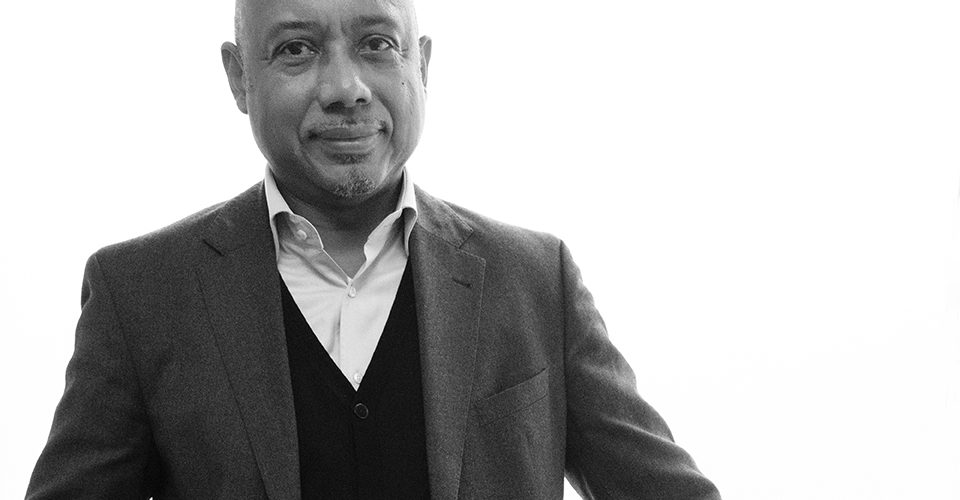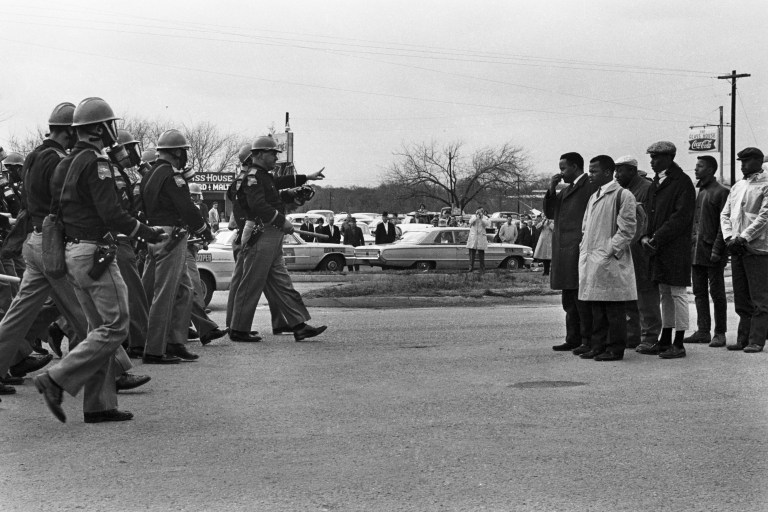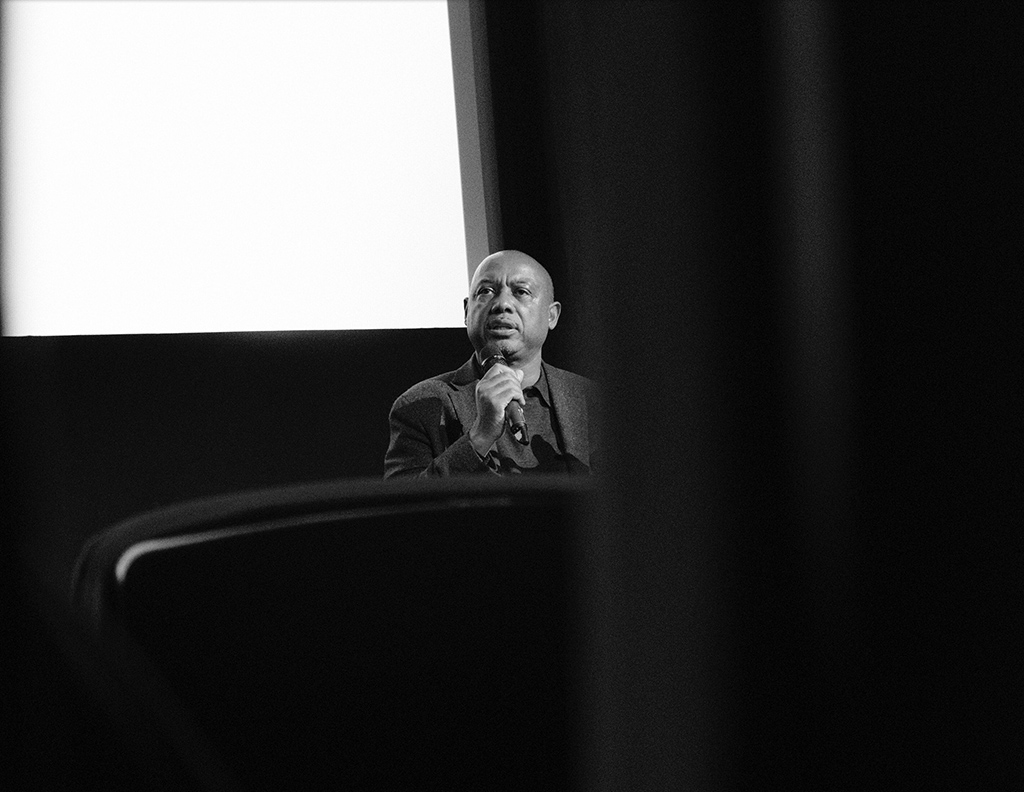James Baldwin, Nina Simone and Maya Angelou – three icons of the civil rights era have resurfaced in a time of renewed activism and political turmoil, when the continued fight for black recognition and inclusion has once again reached a critical mass, and police shootings continue to ratchet up undeserving black bodies.
RAOUL PECK‘s Academy award-nominated documentary “I AM NOT YOUR NEGRO” is at once historical and prophetic. The film is based on the unfinished book “Remember This House” that James Baldwin was writing on the life, leadership and ambitions of his friends Medgar Evers, Malcolm X, and Martin Luther King Jr., all of whom were assassinated as they were seen as threats to the status quo.
James Baldwin, as a writer, was astute at describing, summing up, communicating and putting in perspective, the black psyche. We turn to James Baldwin for a benchmark when society tells us that equality has been reached, and we see that we have gotten nowhere.
Ten years in the making, Raoul Peck breaks new ground in documentary film storytelling by using only the words of Baldwin, preexisting film footage, and leaving out the usual trope of the talking heads. We get direct access to Baldwin.
“I AM NOT YOUR NEGRO”, is a very important film for everyone to see. Black people can use it as a tool to keep our story alive, to tell our history to our children. The society at large can use it to remember that racism is not over and we have a far way to go in the struggle for true equality.
KRULL magazine’s Andrea Davis Kronlund had a chance to meet with Peck during Stockholm’s Tempo documentary festival to talk about his work.
You made your film using exclusively the text from Baldwin’s unfinished book and historical footage. Which came first in your creative process; the text or the available film footage?
Well, in fact we had to find the process to make the film. There are no rules for a film like this. But, somehow I knew that the text had to be there first. So I spent a year working on this sort of “libretto” as one would do for an opera.
I had to have a first draft of the text, so I went through the work, took part of the notes from ‘Remember This House’, went through other texts, published books and letters etcetera, etcetera. Until I felt like I could tell a story with the dramatic structure, with a beginning, middle and end that made sense. That first libretto was about three hours of film, if I had used it. So I started cutting it of course.
A lot of quotes came from a book with the title ‘The Devil Finds Work’ which is a book about film critics. People don’t know it, but Baldwin was an incredible film critic and you can see it in the film. He went further than just analyzing a film; it was also a society critique. So we would send our researcher to get all those films. After that, the struggle was what parts you take. It was always a back and forth between the text and the images, and some of the images came very late. At first, I didn’t want to touch anything in the text and in fact I didn’t put any words of mine. All the words you hear are Baldwin’s. The only thing we did maybe two or three times is to add the noun or the pronoun of the thing so that it was clear who it was, but other than that everything is directly out of Baldwin.
Baldwin moved to Paris when he was 24. Paris has historically functioned as a refuge for Black Americans in the arts and culture, especially political, revolutionary blacks who want to change something. Why do you think this is, and what is there in Paris? I know you live there yourself.
Paris, many times in its own history, because of the French Revolution, the French idea of the intellectual, the idea of progress, has always been a refuge for people from all over the world. So, there is the mystical idea of Paris. It’s funny that my other film, Karl Marx, started when Marx goes to Paris, meets Ingalls and becomes friends.
I think that for Baldwin, there were a number of elements, one being this mystical circle aspect, and also it was just because there were other writers who were already in Paris. Richard Wright being one of the most famous and his mentor of the time. The painter Beauford Delaney also went with him. So, Baldwin had groups of elders who were able to take care of him and to welcome him. It was a very strong community even though they were sometimes not always on the same page. He said in the film that he could have gone to Timbuktu or where ever. What he really urgently needed was to leave America, in order to survive. And when he said survive, it goes both ways. It could have been because he could have been killed by cops, or because he would have committed suicide like one of his best friends had done a year earlier, because of the pressure of finding who he was as a Black man in America.
The three people in Baldwin’s unfinished book – Medgar Evers, Malcolm X and Martin Luther King – existed in a time and world where revolutionaries dared to exist. And, people supported those kinds of leaders. Today we have Black Lives Matter, Occupy Wall Street and the 99% Movement that are not led by single leaders but based on the idea of a unified group. Do you think this is the result of the fate that was met by these three leaders for example? – You can’t kill them if you can’t find them.
There is no easy answer to that because on one side the phrase “the leaders” meant that they were identified as such and could be killed, which is what happened. There were also a number of lesser-known radical leaders who were killed or imprisoned, and died in prison as well. A big part of the Black Panther leadership was killed, sometimes in their beds.
On the other hand, I think there’s a confusion in today’s movements. Resisting and renouncing leaders is a reaction to the fact that a lot of leaders were bad leaders. And that people want to be equal. People want to have an equal share of power, etcetera. But, until you find a credible and efficient answer to that, you are bound to fail. That’s what happened to a lot of those movements at the moment they were confronted with the necessity of making a decision. Because, sometimes you cannot come to a consensus. Sometimes the majority either goes for one solution, or response, or they don’t. You can’t always have equal shares and equal parts of the response. That’s why debates are there. But, at some point, there comes a moment where the debates have to end.
Also, a lot of these movements have problems with power because power has been so abused in our history…and will continue to be abused. So the question we should ask is, “How do we control power?”
How do we ensure that the leader of a movement also has the responsibility to answer to the group? This is also what Martin [Luther King Jr.] struggled with and this was not respected later on. Which emerged first, the leader or the movement? Usually the movement creates the leader and because the leader is accepted by everybody, not because he was born a leader. It’s a situation that requires checks and balances. That’s the reality. It’s not easy and we’re still struggling with a response to that.
We also need to question our notion of democracy today. Because we see that a sort of superficial democracy elected people like Putin or Berlusconi. We can see that the system is not performing as it should. So, what does that tell us? It says that, well, we have gotten lazy in our understanding of what democracy is. We’ve started to use the vote as a consumer good. We vote like we’re buying a piece of soap–
Or we don’t vote
–Or we don’t vote. I come from a country [Haiti] where you had to fight in order to be able to vote. So it was never taken for granted. But most of the western world’s countries did not renew that democratic concept of voting. And the way the society is built, the way capitalism works, it makes everything possible so that you get lazy and have enough toys to play with so that you don’t need to be engaged.
We seem to be living in an age where capitalism has bought politics. In the film when Bobby Kennedy said, “…in 40 years you can have a black president.” Now, we’ve had a black president who in terms of his power was nurtured by capitalism because to get things done, he became like a dealmaker for the capitalists. So, if another black president comes in, what kind of America would they inherit?
Well that’s the problem. It’s not about the Black president or the Chinese president or the woman president, it’s about the society. And, and by the way, it would be too easy to put the whole weight of that on Obama. There is only so much that he can do without the support of the majority of the people.
You know, I have been in politics. I proposed laws that would have changed everything but how could I fight for those laws when I didn’t have the numbers on the street. When the people I’m trying to solve problems for are not organized enough in order to take advantage of their own progress. That’s the reality. If the people who voted for Obama were on the streets throughout his eight years, he would have done more. They would have controlled Congress. It’s a big machine so you can’t just vote and then expect that the big machine would take care of it for you. We somehow became lazy over the years.
And maybe making us lazy makes us more “manipulable”?
Of course. We are after more comfort. We are afraid of violence. We are afraid of lack of security. We want our little bubble intact, which is an illusion. It’s like saying that everything we own, we own by our own strength and we don’t need the rest of the world. Then you would have to start living naked because everything you own comes from elsewhere. Capitalism is already all over the planet. There is not even a diametric world like it was during the Cold War. Capitalism is everywhere. It’s all linked and our history is linked as well. So, you can still pretend that you want to keep your little comfort in your little street, in your little house but that’s an illusion. Out there, there are people struggling for their lives and they aren’t going to go down like this.
It feels like Baldwin was very prophetic, and frighteningly accurate, 50 years ago today. Would you say that all of this is an indication of America moving towards the might of the American dream. Because like you said, everybody hunkering down to their own individuality and their comfort–
That’s the reason why Baldwin’s analysis is so strong and why Marx’s analysis is still strong. Both men talk about a very clearly defined world which is the capitalist society. Racism being one expression of that capitalist society and those fundamentals have not changed. They have even become worse on certain levels. So, they cannot be wrong. The core of their analyses is putting it all on the table and showing the consequence of it, so any consequence that was true when Baldwin did it will be even worse today. Take any one — when he said that the entertainment industry is like the use of narcotics, the way it works, why is it true today? Because it did not change, it became worse. Racism, housing, school, hospital, whatever the notion. He said we are a society that does not care about its poor people, that doesn’t care about equality. It’s worse today, but it was already true back then. And when he said “the rich became richer, the poor became poorer,” you can prove it. [Thomas] Piketty showed us that the centralization of wealth is in the hands of a tiny wealthy minority. Eight persons in the World own 41% of it’s wealth. 8 people!
And Rupert Murdoch own something like 75% of the news sources or the media sources or something like that. One person!
I’m amazed how people don’t do anything when they see those numbers. We are always creating some fairy tale about progress when the numbers are telling you exactly the contrary. So you are going to elect a billionaire, thinking that billionaire is the best to know what’s better for you. That’s crooked. So that’s why I’m amazed about reality because it’s incredible, it’s irrational, it’s crazy.
In the film, Baldwin talks about writing the book as being on a journey that would change him. How was the journey of making this film and did it change you? You talked about it being ten years…
Well, it’s because it was not so much a journey for me, because don’t forget, I knew Baldwin. For me the journey was how do I bring Baldwin back. It was not so much a confrontation or an exchange between me and Baldwin. It was really, how do I do the best job into bringing him RAW, to an audience? That was my job.
So, it was much more of an artistic journey as a filmmaker to really create a form to do this. And I think that’s what we succeeded in doing. I don’t know of any precedent in making a film from the inside of the head of a writer, using only the works of that writer, matching that with multiple images and making it a film with dramatic structure using an authentic voice.
But how did it happen for you? Was it just luck or charm or…?
No, no, it was because I made choices in my life, and those choices at one point paid off. Gloria Karefa-Smart, James Baldwin’s younger sister, who I met, had seen my film, Lumumba. She has a connection to Africa. She has a connection to her history and she sees what is being made so she trusted me. There is no other explanation. She just trusted me and just gave me everything. And in turn, I had to respect that trust and I had to make a film that I felt would put Baldwin back where he needed to be. That was a sort of unspoken agreement she had with me. I also felt a responsibility, as a filmmaker. I had to focus because I knew I had only one shot. And that film better be good, better be strong, better be original and unprecedented because I had unprecedented conditions.
And how did you handle the pressure that pressure?
Through time and patience and being my own master. Also, not to have to deal with other people’s craziness. I have enough with my own craziness. So I took the time to solve my problem within the context of the film and not add any other people’s influences, because when you are doing something that you yourself don’t know exists – imagine the kind of exchange you can have. You’ll have people saying “no you can’t do this, that’s never happened, that’s never done”, etc. So, you don’t want to have those kinds of discussion because it’s gonna impede you, it’s gonna slow you down, it’s gonna take part of your energy that you need to put in the movie itself.
If you haven’t seen “I AM NOT YOUR NEGRO” or want to see it again, it is still in cinemas in Sweden and will be heading to television soon. The film also continues it’s world tour releasing in France next week and Norway next month.
-words & portrait ANDREA DAVIS KRONLUND








